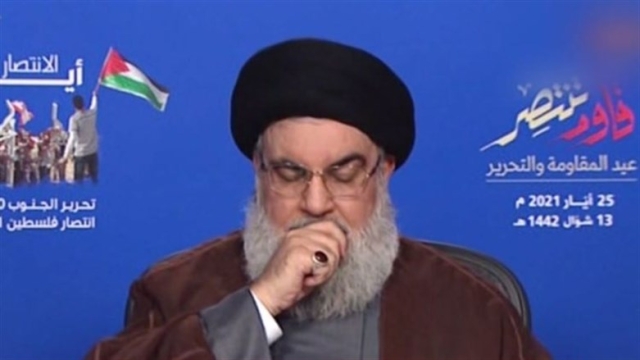Hezbollah's Al-Manar network recently published a letter attributed to the organization's Secretary General, Hassan Nasrallah. The unique aspect of this letter was that it was written in Nasrallah's own handwriting. Nasrallah, known for his discretion and avoidance of public appearances, used this letter to clarify the organization's stance on how to address funerals and memorial events for Hezbollah members killed by Israeli forces. In a poignant statement, he said, "I ask Allah to bless all the martyrs with acceptance and mercy, and their families with strength and honor in both this world and the next."
According to Al-Manar's report, Nasrallah also had significant meetings with key figures in Palestinian resistance. He met with Ziad Al-Nachala, Secretary General of the Islamic Jihad, and Saleh Al-Arouri, Deputy Head of the Political Bureau of Hamas, both of whom reside in Lebanon. During the meeting, the three leaders discussed recent events and the ongoing conflict in various regions. They deliberated on strategies to achieve a definitive victory for the resistance movement in Gaza and to halt Israeli aggression against Palestinians in the West Bank and Gaza. Al-Manar emphasized that the parties "agreed to maintain close coordination and monitor developments on a daily basis."
Iran-backed senior terrorists meet in Lebanon:
— Israel War Room (@IsraelWarRoom) October 25, 2023
Hezbollah chief Hassan Nasrallah hosted Hamas deputy chief Saleh al-Arouri and Palestinian Islamic Jihad head Ziyad al-Nakhalah in Beirut as the terrorist groups continue joint efforts to murder innocent Israelis. pic.twitter.com/zqSyMGsixp
This publication of Nasrallah's letter and his meetings with leaders of Palestinian organizations underscore his commitment to the unity of the resistance movements. It serves as evidence that Hezbollah is actively engaged in the struggle "on the road to Jerusalem," aligning itself with Hamas and the Palestinian Islamic Jihad. Additionally, Nasrallah's mention of Judea and Samaria in his statement underscores his dedication to the Palestinian cause.
On the northern border, Hezbollah operatives, in collaboration with Palestinian militants from Hamas and the Islamic Jihad who operate in southern Lebanon, are making attempts to target Israeli Defense Forces (IDF) using various tactics. However, the Israeli security establishment has recently assessed that Iran and Hezbollah are not inclined, at this stage, to risk a war that could result in the devastation of Lebanon, including parts of Beirut and the Shiite city of Baalbek.
With pride and honor, Hezbollah mourns one of its Resistance fighters, Jaafar Mofleh, who was Martyred while carrying out his Jihad duty on the path of Al Quds pic.twitter.com/aQ6G6BDKRf
— Hussein (@EyesOnSouth1) October 25, 2023
Hassan Nasrallah has chosen to maintain an air of ambiguity regarding the future course of the campaign, refraining from public appearances or statements. Hassan Fadlallah, a parliament member representing Hezbollah, who is known to be close to Nasrallah, stated this week that Nasrallah vigilantly monitors developments in southern Lebanon and Gaza, overseeing the actions of field commanders in the ongoing battles. Fadlallah commented, "I've told the families of Nasrallah's martyrs that 'all the martyrs are his sons.'" He further emphasized that Nasrallah directly manages the confrontations with field commanders, and his absence from the media serves as a strategic move in managing the conflict. Fadlallah affirmed that Nasrallah will appear in public when he deems it necessary.


